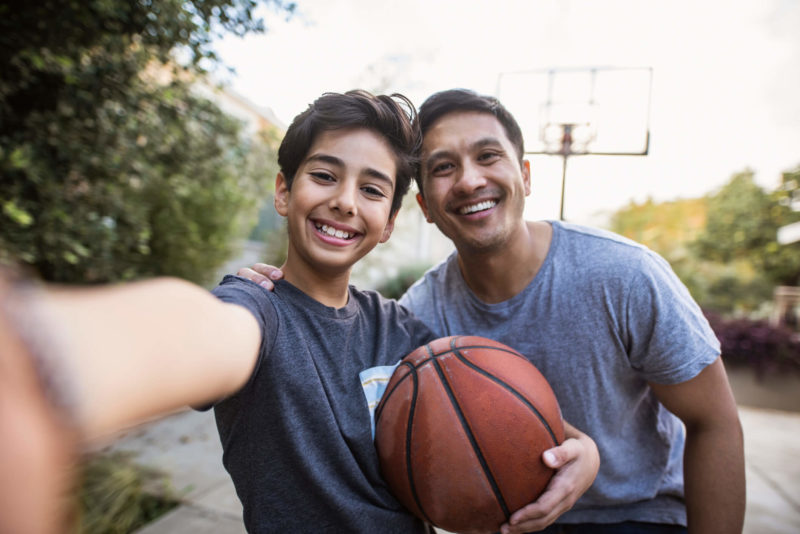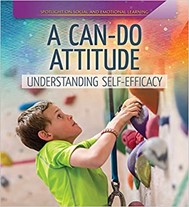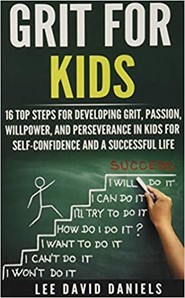
by Jocelyn Markowicz, Psychologist, PhD, in San Diego, CA
Master Class for Boys: Lessons from the G.O.A.T.S.
Our young boys need support. Fewer boys are now graduating from high school (Reeves, Buckner, and Smith, 2021). Currently, women represent 60 percent of college enrollment versus men at 40% (Marcus, 2021). Many opinions and theories seek to explain why our young boys are falling behind. One theory suggests that young boys from working-class environments struggle with entanglements in a cycle of acting out and becoming disengaged in response to frequent reprimands (Nolan, 2019). Can we help our young boys meet life’s challenges and achieve great success? Perhaps the G.O.A.T.s help guide the way.
G.O.A.T. is an acronym that stands for the Greatest of All Time (Gurnett, 2019). There are several male athletes that are considered to be G.O.A.T.s: Tom Brady (N.F.L. player), Michael Jordan (retired N.B.A. player), Babe Ruth (deceased N.B.L. player), Muhammad Ali (deceased professional boxer), Ric Flair (retired professional wrestler), Lebron James (N.B.A. player), and Anderson Silva (former M.M.A. competitor), among others. Together, the G.O.A.T.s can help teach our young boys to be self-efficacious, to embody grit and resilience, to work hard, and to develop stronger self-confidence. They offer a master class of success for our young boys. Read on for some lessons from the G.O.A.T.s and book recommendations to accompany those lessons.
 Tom Brady’s Lesson About Self-Efficacy
Tom Brady’s Lesson About Self-Efficacy
Self-efficacy, or the belief in one’s capability to perform a given task, is a factor shown to predict success (Usher, Li, Butz, & Rojas, 2019). Self-efficacy says, “I can do this.” A large body of research has shown self-efficacy to be an important precursor to success (Bandura, 1997; Schunk & DiBenedetto, 2016). Tom Brady, a well-known G.O.A.T., once said, “A lot of times I find that people who are blessed with the most talent don’t overdevelop that attitude and the ones who aren’t blessed in that way are the most competitive and have the biggest hearts.” Tom Brady’s self-efficacy is in part, responsible for his success as a seven-time winner of the Super Bowl. He is also a college graduate from the University of Michigan. A Can-Do Attitude: Understanding Self-Efficacy is a lovely book by Caitie McAneney that helps children understand how to master self-efficacy.
 Michael Jordan’s and Lebron James’s Lessons About Resiliency and Grit
Michael Jordan’s and Lebron James’s Lessons About Resiliency and Grit
Resilient individuals can become stressed, but they are able to demonstrate stability in their social, psychological, and physical well-being in these situations, despite the adversity with which they are faced (Black & Dorstyn, 2015). Lebron James inspires young people to pursue despite what they have gone through. He once said, “I think the reason why I am who I am today is because I went through those tough times when I was younger.” In essence, he gives young boys a framework to develop resiliency, which is only attainable through experiencing hard times. Dr. Angela Duckworth defines “grit” as a facet of conscientiousness involving the combination of passion and perseverance for long-term goals. Research has demonstrated that grit is an important ingredient of success (Duckworth, Peterson, Matthews, and Kelly (2007)). Michael Jordan is a graduate of the University of North Carolina. He also won six basketball championships across his career. Lebron James is a high school graduate who went straight to the NBA out of high school. He values education and opened a school in Ohio called I Promise. He has won four championships to date. Lee David Daniels offers a wonderful guide to help young boys develop grit in his book Grit for Kids: 16 Top Steps for Developing Grit, Passion, Power, and Perseverance in Kids For Self-Confidence and a Successful Life.
 Babe Ruth’s and Anderson Silva’s Lessons About Hard Work
Babe Ruth’s and Anderson Silva’s Lessons About Hard Work
The sheer magnitude of expressions about the power of hard work supports the notion of its power on success. Babe Ruth once said, “You just can’t beat the person who never gives up.” A study investigating the power of work socialization messages from mothers found that for boys, greater frequency of conventional messages (e.g., importance of discipline, hard work, and skills for job success) was associated with stronger endorsement of hard work for success. Anderson Silva, former Mixed Martial Arts (M.M.A.) competitor, agreed that hard work leads to success. He offered sound advice: “If you train 100% [sic] the result will be 100%.” Babe Ruth was a high school graduate who secured a spot in the Baseball Hall of Fame. Anderson Silva was the son of an impoverished family. He worked at McDonald’s and later as a file clerk before becoming an M.M.A. competitor. He now holds the record for the longest title reign in U.F.C. history. Dr. Debora Gilboa has a wonderful book titled Teach Responsibility: Empower Kids with a Great Work Ethic! that is a great tool to help parents foster a desire to work hard in their sons.
 Muhammad Ali’s and Ric Flair’s Lessons about Self-Esteem
Muhammad Ali’s and Ric Flair’s Lessons about Self-Esteem
Self-esteem is the overall assessment of your value (Minev et al., 2018). Self-esteem is a dynamic trait amenable to change through life experiences. The amenability of self-esteem gives parents wonderful gateways into shaping their sons’ self-esteem. Boys develop their self-esteem starting from birth, and their appraisal of their worth is further shaped by their experiences. “I am the greatest. I said that even before I knew I was,” Muhammad Ali infamously said, demonstrating his unparalleled confidence. Rik Flair is also well-known for his unabashedly strong self-confidence. He once said, “When somebody has convinced you that you’re not worth anything to anybody anymore, and they spend a lot of time doing it, you start believing it yourself.” Ric Flair recognized the dynamic trait of self-esteem and the influence experiences with people can have. Both Muhammad Ali and Ric Flair used their self-confidence to boost them toward their success. Muhammad Ali became the world champion in boxing and was elected to the Boxing Hall of Fame. Check out Being Me: A Kid’s Guide to Boosting Confidence and Self-Esteem by Wendy L. Moss, PhD, a wonderful book that parents can use to help their sons develop the confidence that Muhammad Ali and Ric Flair demonstrated across their careers.
Helping Boys Find Their Path to Success
The G.O.A.T.s offer a wonderful pathway for the young boy in your life to be the next G.O.A.T. of business, engineering, medicine, sports broadcasting, painting — you name it. The lessons of greatness are the same. Teach him well and learn from those that came before him who achieved great success. The path to success does not go through the door of perfection. Success comes from triumphs won through persistence. I encourage parents to take the next step in the G.O.A.T. master class for boys by working diligently to help their sons develop the character traits optimal for success.
At a loss about how to support and care for your child? Feeling at your wit’s end about parenting? A psychotherapist might be just what you need. Start your search today.
References
Bandura, A. (1997). Self-efficacy: The exercise of control. W H Freeman/Times Books/Henry Holt & Co.
Black, R., & Dorstyn, D. (2015). A biopsychosocial model of resilience for multiple sclerosis. Journal of Health Psychology. 20. 1434-1444.
Camacho-Thompson, D. E., Gonzalez, N. A., & Tien, J. Y. (2019). Parental Academic Involvement Across Adolescence Contextualized by Gender and Parenting Practices. American Psychological Association, Vol. 34, No. 4, 386–397.
Cobbett, M. (2014). Being ‘nuff’ and ‘scudding class’: Exploring girls’ and boys’ perceptions of popularity, gender and achievement in Antiguan secondary schools. British Educational Research Journal, 40(1), 45–62.
Complex Sports. (2019, February 16). G.O.A.T. Athletes: The Definitive List. Complex. https://www.complex.com/sports/2018/09/the-greatest-of-all-time
Duckworth, A. L., Peterson, C., Matthews, M. D., & Kelly, D. R. (2007). Grit: Perseverance and passion for long-term goals. Journal of Personality and Social Psychology, 92(6), 1087–1101.
Gurnett, B. (2019). Making The Case for The Greatest of all Time. Sterling Publishing, 5.
Minev, M., Petrova, B., Mineva, K., Petkova, M., & Strebkova, R. (2018). Self-esteem in adolescents. Trakia Journal of Science. 16. 114-118.
Larissa, N. Boys don’t try? Why so many male students are falling behind at school. https://www.irishtimes.com/news/education/boys-don-t-try-why-so-many-male-students-are-falling-behind-at-school. Retrieval date: May 17 2021
Marcus, Jon. The pandemic is speeding up the mass disappearance of men from college. https://hechingerreport.org/the-pandemic-is-speeding-up-the-mass-disappearance-of-men-from-college/. Retrieval date: May 17, 2021
Reeves, R. V., BuEliana Buckner, & Ember Smith. The unreported gender gap in high school graduation rates. https://www.brookings.edu/blog/up-front/2021/01/12/the-unreported-gender-gap-in-high-school-graduation-rates. Retrieval date: May 17, 2021
Schunk, D. H., & DiBenedetto, M. K. (2016). Self-Efficacy theory in Education. In Handbook of Motivation at School: Second Edition (pp. 34-52).
Usher, E. L., Li, C. R., Butz, A. R., & Rojas, J. P. (2019). Perseverant grit and self-efficacy: Are both essential for children’s academic success? Journal of Educational Psychology, 111, No. 5, 877–902.
Weir, K. (2020, February 1). The gritty truth. http://www.apa.org/news/apa/2020/gritty-truth
© Copyright 2021 GoodTherapy.org. All rights reserved. Permission to publish granted by Jocelyn Markowicz, PhD, Psychologist
The preceding article was solely written by the author named above. Any views and opinions expressed are not necessarily shared by GoodTherapy.org. Questions or concerns about the preceding article can be directed to the author or posted as a comment below.
